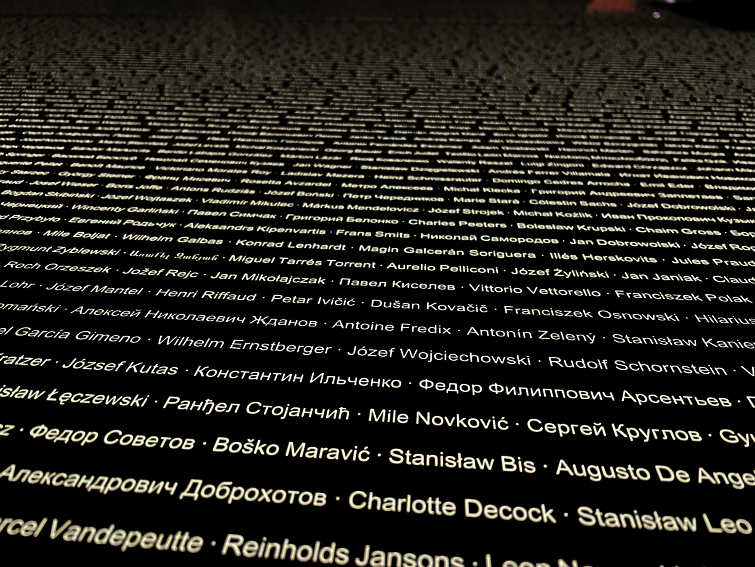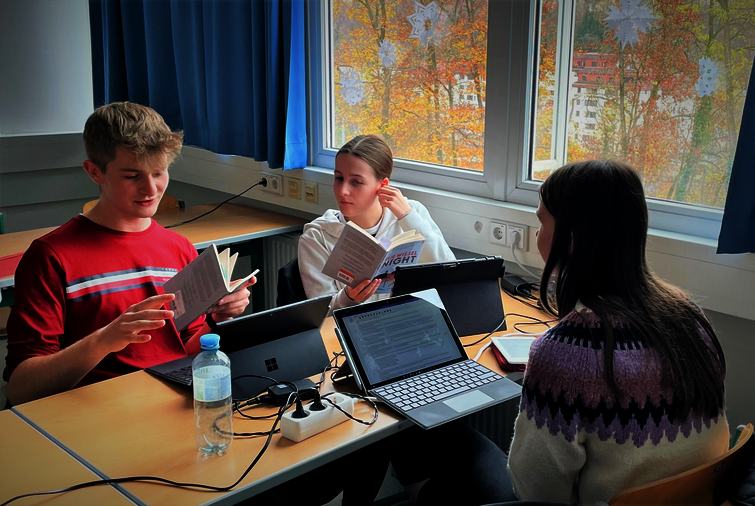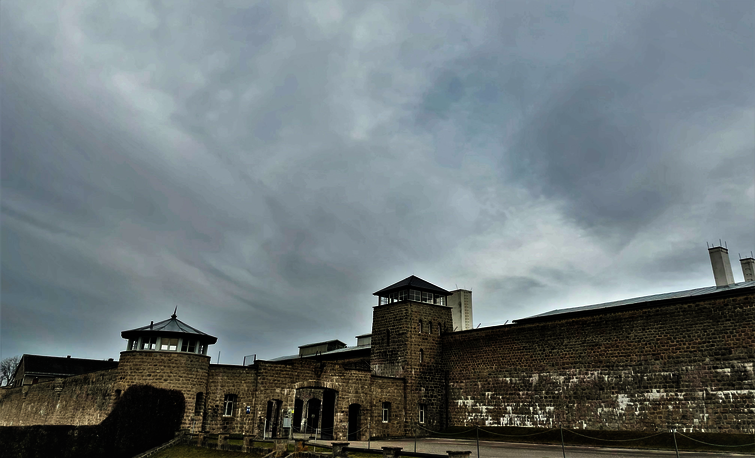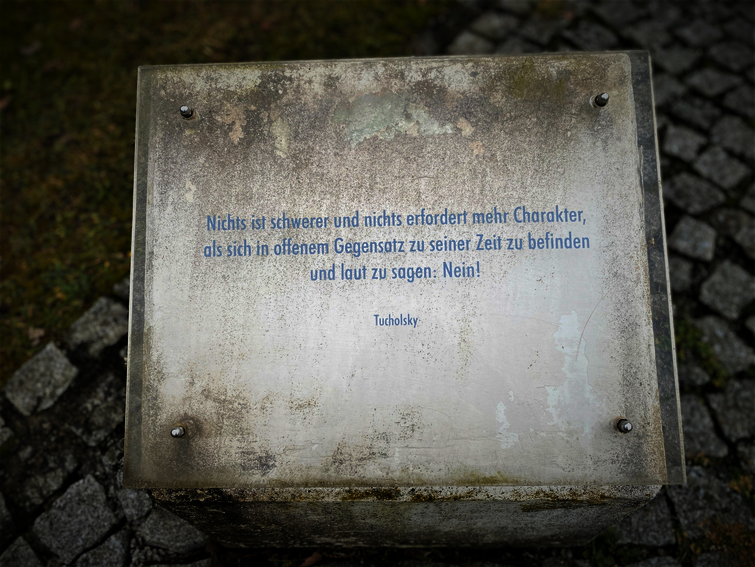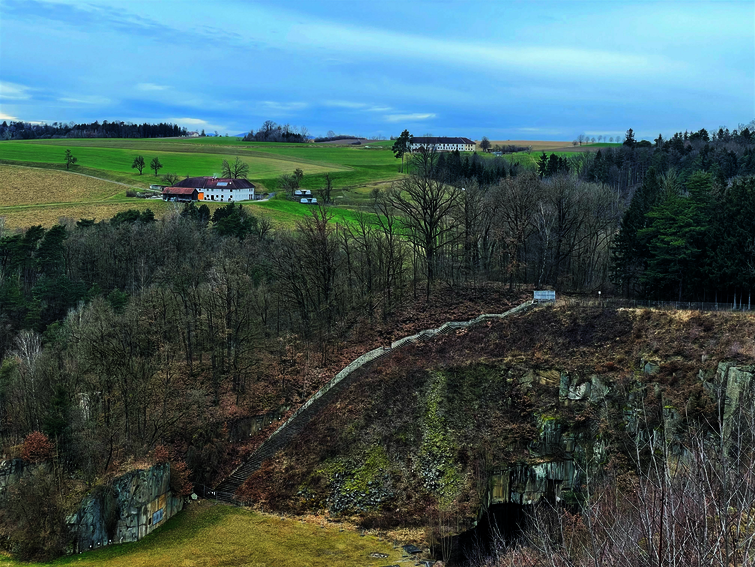Reading prompted earnest discussions, difficult questions, and keen reflections that students kept in a reading journal. We wrestled hard with the hatred Wiesel felt and witnessed.
The sheer number of victims challenges comprehension. Through reading Wiesel’s memoir, we came closer to seeing the individuals behind the numbers and were able to add voice and make meaning out of the statistics. Upon finishing, students asked to take a field trip to Mauthausen Memorial to confront things Mr. Wiesel had described and to remember those who had suffered there.
January 12, 2023 we traveled by train to Mauthausen, then took the same path that hundreds of thousands of victims took between 1938 and 1945 up to the Mauthausen concentration camp and now memorial site. We bore witness to where the atrocities happened and we were guided by a Ukrainian historian, who asked us to keep perspective and reminded us of the dangers of both not remembering history and not using our voices in a democracy.
Students reflected on Wiesel’s words, their feelings, and takeaways from their trip to Mauthausen:
“We knew that this would not be like any other excursion. “Never shall I forget the smoke. Never shall I forget those flames” Elie Wiesel wrote in Night. Each of us remembered those words when we walked from the Mauthausen Station up to the concentration camp. Although many years have passed since that horrible time, it seemed like Mauthausen had just been closed. The horror of former times still there. Each citizen should visit.” -Emma Garstenauer
“Our excursion to Mauthausen confirmed and visualized the facts that we had read about in the book.” -Miriam Peisl
“When we arrived there, I understood why I had been feeling queasy. Being there was sad. When standing at the crematorium, a line from Wiesel’s book came to mind and reminded me of the anger I had felt when reading: “He had been forced to place his father’s own body into the furnace”. Going to Mauthausen reminded me how important it is to keep memories both good and bad, so we can learn and not repeat.”-Ajdin Mujadzic
“To read about the crematoriums is frightening, but to stand next to one that was actually used on tens of thousands of people was terrifying. I am so glad we visited Mauthausen because it really can change a person if they can see and touch parts of the past.” -Matteo Koristka-Kreuzriegler
“I felt numb and I couldn’t imagine that in this place people had been worked to death and murdered. The book Night reminded me of the Yugoslav war. The most important thing that I learnt was to never forget what happened and to remember the people who died there.” -Lemisa Hadzic
When teens asked Wiesel in 2011 how this generation could help, he said, “Listen to the survivors. They are an endangered species now. This is the last chance you have to listen to them. I believe with all my heart that whoever listens to a witness becomes a witness. Indifference to evil makes evil stronger” (LA Times).





